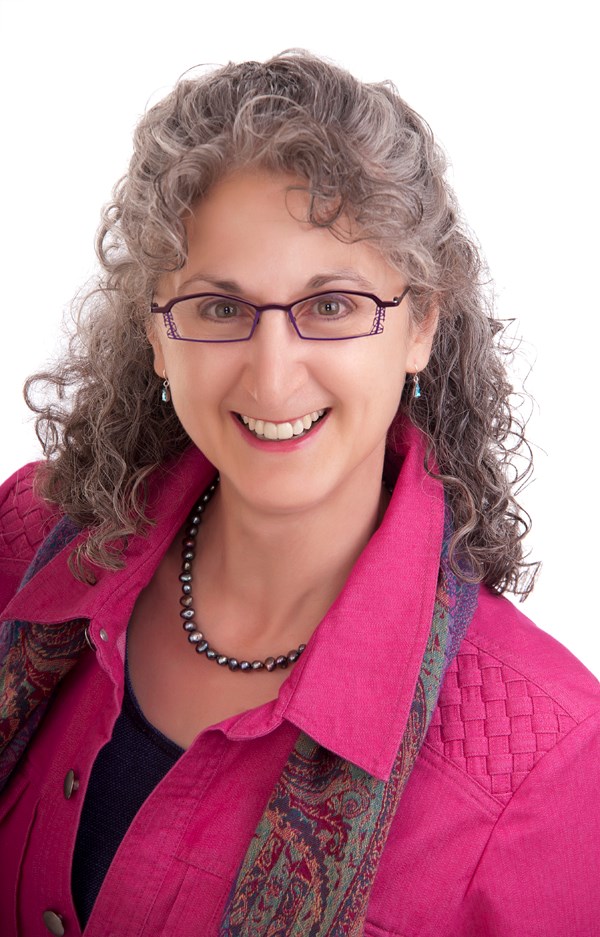Earlier this year, I took a six week course titled How Happiness Thinks, from the Jewish Learning Institute (JLI), led by Rabbi Meir Kaplan in Victoria, BC.
The title intrigued me as I have been blessed with a positive outlook on life that enables me to see the good in, or the good that comes out of, almost any situation. I take to heart and act on catch-phrases, such as: ”when one door closes another one opens”, “every problem presents an opportunity”, and “every cloud has a silver lining”. I was actually once berated by a co-worker in a staff meeting for being too positive!
I admit to being baffled by friends who spend hundreds of dollars on books, courses and workshops on “how to be happy” and “how to be positive” — baffled because what they learn seems to wear-off after a short while. Yet, here I was, enrolling in a course on “How Happiness Thinks”. Why? What did I hope to learn?
Over the past eight years, I have taken many JLI courses to learn more about my heritage and the Jewish perspective on matters that apply to everyday life. The course readings include excerpts from the Torah, Talmud, Nevi’im (prophets), Tehillim (psalms), and Sages along with respected Jewish and non-Jewish thought leaders from the past and present. I trusted that in this class I would gain insights into practical and spiritual approaches to happiness.
In our first class, Rabbi Kaplan asked us to define ‘happy’ and surprisingly many of us were stumped. A quick trip on a smartphone to dictionary.com revealed that the origin of the word includes: “From Greek to Irish, a great majority of the European words for "happy" at first meant “lucky." An exception is Welsh, where the word used first meant "wise."
So we learned that “happy” related to “lucky” which didn’t seem to bring us closer to a working definition of Happiness, since Happiness is the state of being Happy, and being lucky seemed to be something that happens by chance and beyond our control. We then turned our attention to synonyms for Happiness, and started to get closer to a working definition. These synonyms include: pleasure, joy, exhilaration, bliss, contentedness, delight, enjoyment, satisfaction.
From this list, we focused on the joy and learned that the Hebrew letters for “with joy” are the same letters that spell “thought”. And with this insight we began to understand that Happiness is not something we can find outside ourselves; it is something we must find and nurture within.
With this definition, much of our public discourse concerning happiness ceases to make sense. The question, “Is happiness is a right or a privilege?” focuses on happiness as dependent on external forces rather than internal, as does the perspective that each person has an “inalienable right to pursue happiness”.
Since external forces are beyond our control, then happiness that comes from those forces is also beyond our control and beyond our ability to sustain it.
My biggest take-away from this course is that, from the Jewish perspective, happiness is an obligation, not a right or a privilege. Each of us is obligated to be happy and with that happiness, we will accomplish our purpose of Tikkun Olam — repairing the world and bringing heaven down to earth.
One way you can practice "happiness as an obligation" is to place the following message on one or more mirrors in your home: "I am looking at the person responsible for my happiness today." Read it daily to shift from pursuing happiness in the outside world to generating it from within.
 Fiona Prince, MA is a coach, facilitator and teacher who seeks to provide people with the fundamental communication and writing skills they need to succeed in their academic and professional lives. She worships at the Chabad Family Shul and teaches people the mechanics of how to read Hebrew. You can learn with her at www.morahfaiga.com.
Fiona Prince, MA is a coach, facilitator and teacher who seeks to provide people with the fundamental communication and writing skills they need to succeed in their academic and professional lives. She worships at the Chabad Family Shul and teaches people the mechanics of how to read Hebrew. You can learn with her at www.morahfaiga.com.
You can read more articles from our interfaith blog, Spiritually Speaking, HERE
* This article was published in the print edition of the Times Colonist on Saturday July 11 2015


